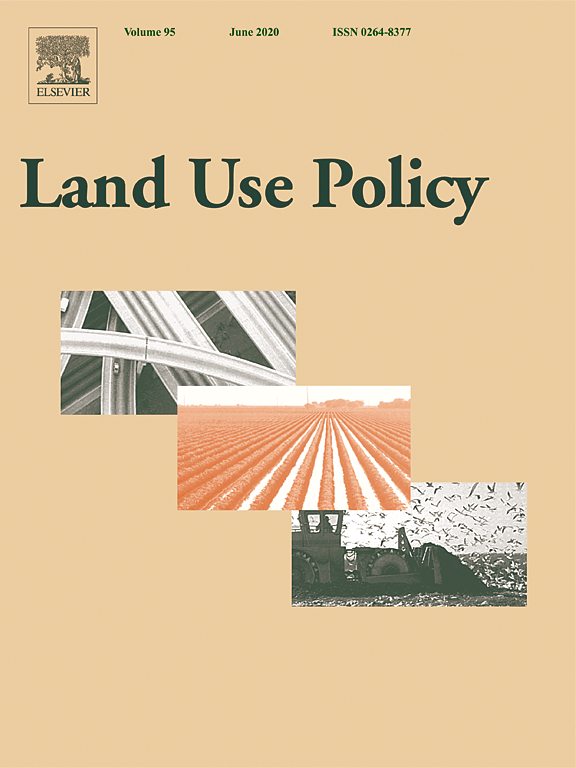Location
Land Use Policy is an international and interdisciplinary journal concerned with the social, economic, political, legal, physical and planning aspects of urban and rural land use. It provides a forum for the exchange of ideas and information from the diverse range of disciplines and interest groups which must be combined to formulate effective land use policies. The journal examines issues in geography, agriculture, forestry, irrigation, environmental conservation, housing, urban development and transport in both developed and developing countries through major refereed articles and shorter viewpoint pieces.
Land Use Policy aims to provide policy guidance to governments and planners and it is also a valuable teaching resource.
ISSN: 0264-8377
Members:
Resources
Displaying 131 - 135 of 279Can economic and environmental benefits associated with agricultural intensification be sustained at high population densities? A farm level empirical analysis
Boserup’s pioneering theory holds that rising population density can be accompanied by sustainable agricultural intensification. But can this positive relationship be sustained indefinitely, or are there conditions under which rising population density can lead to declining agricultural productivity? This study utilizes survey data on farm households in Kenya and soil samples on their main maize plots to assess whether Boserupian agricultural intensification is sustainable at high population densities.
The ‘new’ African customary land tenure. Characteristic, features and policy implications of a new paradigm
Most of the land in sub-Saharan Africa is governed under various forms of customary tenure. Over the past three decades a quiet paradigm shift has been taking place transforming the way such landl is governed. Driven in part by adaptations to changing context but also accelerated by neo-liberal reforms, this shift has created a ‘new’ customary tenure in sub-Saharan Africa. This paper reviews some of the evidence and analyses the ways in which this neo-liberalisation of customary tenure has been transforming relations of production and how land is governed in sub-Saharan Africa.
Institutions for governing biodiversity offsetting: An analysis of rights and responsibilities
Offsets for compensating biodiversity loss are increasingly suggested as a system for allocating responsibilities onto those actors who contribute to the loss. As the mechanism is outlined as a new opportunity, the expectations need to be analyzed relative to the ensuing changes in rights and responsibilities over biodiversity degradation, conservation and restoration. In this paper we conduct an analysis of rights and responsibilities using literature and empirical material.
Resilience and housing markets: Who is it really for?
Ten years after the Global Financial Crisis, this research examines how resilience theory and rhetoric relating to the economy and housing markets has been translated into policy and practice. The methodology involves a case study of a city (Auckland) with a nationally dominant housing market and high unaffordability. Via secondary literature and a series of interviews we analyse questions connected to resilience from what, how, by whom, and discuss the implications and limits of the approach.
Integrated farm management for sustainable agriculture: Lessons for knowledge exchange and policy
As a response to the environmentally and socially destructive practices of post-war mechanization and intensification, the concept of sustainable agriculture has become prominent in research, policy, and practice. Sustainable agriculture aims to balance the economic, environmental, and social aspects of farming, creating a resilient farming system in the long-term. Over the last few decades, various concepts have been used in research and policy to encourage the adoption of sustainable practices.



